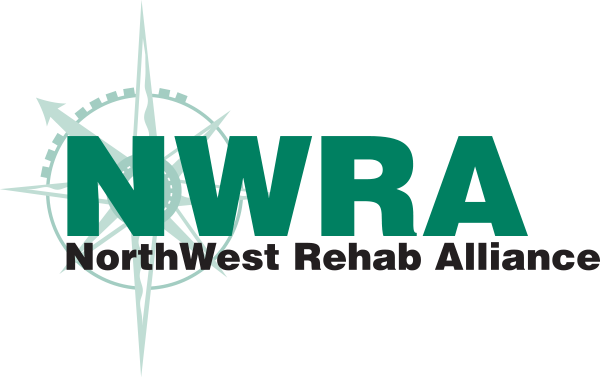Concerta Addiction Rehab Program Royal Oak MD
Home
Top Concerta Addiction Rehab Program Royal Oak MD Resources & Info
Concerta Addiction Rehab Program Royal Oak MD
It's very common to see them work also with family members who are affected by the addictions of the individual, or in a community to prevent addiction and educate the public. 800-273-TALK (8255) Available 24 Hours a Day Eating Disorders The National Association of Anorexia Nervosa and Associated Disorders (ANAD) 1-847-831-3438 (not a toll-free number) Available During Business Hours The National Mental Health Association 800-969-6642 Available During Business Hours Drug Abuse and Drug Addiction Hotlines The National Institute on Drug Abuse (NIDA) (national drug abuse hotline/national substance abuse hotline) 800-662-HELP (4357) 800-487-4889 – for hearing impaired callers (TDD) Available 24 Hours a Day The Partnership for a Drug Free America (Information for parents – This is not for crisis situations) This drug help hotline is intended for parents or anyone else seeking general information about drug abuse. For example, you will receive treatment for your withdrawal symptoms, as well as for malnutrition and other health problems addiction caused in your life.
Both programs are about turning your life over to a higher power. If you have a problem with drugs or have concerns about someone you love, it is vital that you seek professional help and treatment as soon as possible. Explain your concerns and make it clear that your concern comes from a place of love. Whether you are the addicted person or you have a family member who is caught in the throes of addiction, you need to find an outpatient drug and alcohol rehabilitation center near you. That says it all, when our way does not work, we need to ask for knowledge and guidance. Here are the 12 steps as used by Christian addiction treatment centers: Admit he/she has no power over his addiction and their life is unmanageable. This model lays much emphasis on the use of problem solving techniques as a means of helping the addict to overcome his/her addiction.
Even more Info About Xanax Detox Treatment Clinic

Even more Info Around Ghb Rehab Treatment Clinic Royal Oak MD
Most of us may associate addiction with the inability to stop doing or using something. For many drug users, psychological treatment and physical detoxification in a sober, supportive environment allows them to finally enter recovery and embark upon a lifetime of sobriety. This is why it is important to be as informed as possible when making a decision to enter into a Christian treatment program in Texas.
Below are Some More Resources on Kapanol Rehab Treatment Facilities
One can easily be misguided by the tons of information, correct mixed with false, that are available on the internet or through other resources. Once this information is established, if the state deems that the client cannot pay, they may provide free treatment on various levels through specific types of clinics or treatment centers.
Here are Some Even more Info on Kapanol Rehab Treatment Facilities Royal Oak MD
There are many hotlines available, check your local phone book for a hotline in your area. Mainstream addiction rehabilitation programs are primarily based on psycho therapeutic treatment. The people you’ll speak with will help you raise your awareness about your addiction and your life. Let’s start the healing now, do not let another day pass you by. Letting the person accept responsibility for their actions is an essential step along the way to recovery. Emotional tendencies in times of grief make it difficult to find sight toward a future where happiness exists. He won't do anything but sit … Help my mom please! My mom is on drugs and she needs help. They will definitely have the potential to lead on to a full blown addiction and dependency. This is best and famous place for vacation and for lovers too. It assists in the transition from inpatient rehab treatment to integration back into daily living, clean and sober. When you believe in the Lord’s power and those around you do as well, sobriety becomes truly attainable. They understand fully the nature of the disease and combine their personal experience and qualifications to comprehensively treat the psychological aspect of drug addiction in their patients. Relapse prevention[edit] An influential cognitive-behavioral approach to addiction recovery and therapy has been Alan Marlatt's (1985) Relapse Prevention approach.[34] Marlatt describes four psychosocial processes relevant to the addiction and relapse processes: self-efficacy, outcome expectancies, attributions of causality, and decision-making processes.
Click Here for More Information
Previous Next
You may also like:
Endocet Rehab Treatment Program Hughesville MD
Clonidine Detox Treatment Facility Happy TX
Panacet Addiction Rehab Centers Fairview KS
Vicodin Rehab Facility Belspring VA
Symtan Addiction Center Greer SC
Roxicet Rehab Program Hampton FL
Pcp Detox Treatment Facilities Green Forest AR
Luminal Addiction Detox Lake Katrine NY
Methaqualone Rehab Treatment Facilities Blackwater VA
Pentobarbital Abuse Clinic Huntsville KY
Chlordiazepoxide Detox Treatment Programs Palmerton PA
Dexedrine Detox Treatment Programs Sand Springs OK
Butorphanol Rehab Treatment Facilities Altair TX
Molly Abuse Treatment Clinics New Melle MO
Chlordiazepoxide Detox Facility Craddockville VA
Demerol Rehab Program Joseph UT
Darvon Detox Treatment Centers Ashland ME
Christian Hospital Rehabilitation Center Barbeau MI
Xodol Addiction Rehab Programs Loomis NE
Campral Abuse Treatment Center Roxbury CT